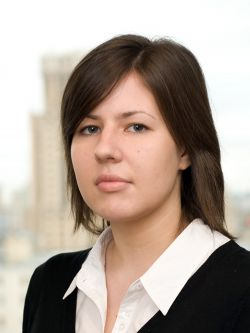
Gennady Odarich
Director, Legal Services
PricewaterhouseCoopers
Every year the number of foreign employees assigned to Russia for employment in Russian and foreign companies acting through branches or representative offices is increasing. This year the government has decided to simplify the procedure for obtaining work authorization documents for so-called highly qualified employees.
On July 1, 2010, the amendments to Federal Law No. 115-FZ on the legal status of foreign citizens (the “Law”) came into force. In accordance with the amendments, highly qualified expatriate specialists are defined as those whose annual salary paid locally is no less than 2 million rubles (about $5,600 per month).
The employer is not required to apply for a quota or obtain an employment permit to employ highly qualified specialists. Moreover, the process of obtaining work permits and work visas for highly qualified expatriate employees has been reduced to 14 working days, instead of the 2.5 to 3 months as per the procedure applicable for regular expatriate specialists.
The work permits and work visas issued for highly qualified employees are issued for a period of three years maximum, in contrast to the validity period of regular work permits, which is just one year and cannot be prolonged, meaning that the procedure has to be started every year from the very beginning. For highly qualified expatriate specialists, it is possible to prolong the work permit and work visa for another three-year period, and the number of such prolongations is not limited by the Law.

Ksenia Trunina
Associate
PricewaterhouseCoopers
The new procedure stipulates that, when applying for a work permit and visa for a highly qualified expatriate specialist, companies must provide the immigration authorities with the application form and employment contract, the term of which could be up to three years, duly signed by both the employee and the employer. Our recent experience shows that
the application form should contain clear references to the foreign specialist’s qualifications, such as work
experience and published scientific articles, if any. Reference letters from the expatriate specialist’s previous employers are a very good addition to the
application form. There are also some requirements of the employment contract concluded with the highly qualified expatriate specialist, such as
provisions for medical insurance. Therefore, having the proper application form and supporting documentation is the key to the success of the overall process.
Although the overall requirements have become simplified, there are still some compliance requirements that should be observed and followed. In particular, the employer should register its highly qualified specialists with the Russian tax authorities and notify the Russian immigration authorities on a quarterly basis with regard to the fulfillment of obligations on salary payments to highly qualified specialists for the amount stipulated by the employment contract. The employer is also obliged to notify the said authorities on the termination of an employment contract with a highly qualified employee, and to inform the authorities with respect to all cases of expatriates’ unpaid leave lasting for more than one month.
It is also important to mention that the work permit for highly qualified expatriate personnel may be valid in several regions of Russia, allowing the expatriate to work in these regions without additional work permits. To benefit from this, the application form must contain the list of regions in which the expatriate intends to work. This is an extremely practical solution for those expatriates whose job duties require them to travel a lot, and for employers who now do not need to worry about receiving separate work permits for every region, as is formally required under the procedure for regular expatriate employees.
It goes without saying that there is a great benefit to having a three-year visa that frees expatriates and their families from the annual headache of carefully planning their travels to renew their one-year visas well in advance.
For employees who do not meet the requirements of a highly qualified expatriate employee, the procedure for obtaining the work authorization documents remains the same as before June 1, 2010.
A Message from The Moscow Times:
Dear readers,
We are facing unprecedented challenges. Russia's Prosecutor General's Office has designated The Moscow Times as an "undesirable" organization, criminalizing our work and putting our staff at risk of prosecution. This follows our earlier unjust labeling as a "foreign agent."
These actions are direct attempts to silence independent journalism in Russia. The authorities claim our work "discredits the decisions of the Russian leadership." We see things differently: we strive to provide accurate, unbiased reporting on Russia.
We, the journalists of The Moscow Times, refuse to be silenced. But to continue our work, we need your help.
Your support, no matter how small, makes a world of difference. If you can, please support us monthly starting from just $2. It's quick to set up, and every contribution makes a significant impact.
By supporting The Moscow Times, you're defending open, independent journalism in the face of repression. Thank you for standing with us.
Remind me later.





